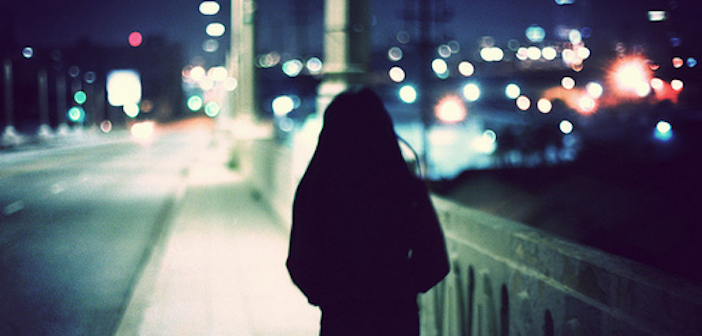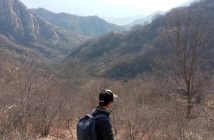Living in China during the outbreak of the Coronavirus isn’t as scary as most people think it is. At least not for me, in the safe bubble that is the outskirts of Beijing, away from the epicenter of the epidemic. The district of Shunyi has come to a standstill. Hardly anyone dares to venture beyond the relative safety of their homes. On the rare occasion when they do, it’s a brisk walk straight to the local supermarket and back. Heads down, hands in pockets, masks on, keep your distance. No one even makes eye contact anymore.
It’s certainly not what I expected when I got on the flight back to Beijing, back from my Lunar year holiday. I was expecting bustling streets, city lights, and crowded shops, maybe a splattering of face masks, but that was all. Instead I was met with banners upon banners of bold white lettering, instructing residents to wash their hands, wear masks, and stop touching their faces. There were also messages of encouragement, of support, informing the public that early detection leads to early recovery. Most importantly, that those who leave their fevers unreported are class enemies.
But we all knew that anyway.
—–
Each morning, you rise just a few minutes before school starts and make your way to your desk to start your day of online learning. It’s a tedious cycle of awkward voice calls, rushed assignments, and constant distractions. There isn’t much motivation to finish your PowerPoint slide when there’s no one to notice if you happen to accidentally click on a YouTube video.
This absence of accountability is what eventually leads to a mountain of unfinished tasks that you can’t be bothered to complete. Instead, you text your friends about how much work teachers are setting and how you can’t possibly finish all of it. But then you remember that your friends are all in different time zones and are probably asleep, so you attempt a set of futile tasks that you don’t really have any interest in completing. You end up with an array of mediocre work which you have no choice but to turn in.
—–
Even during this exceptional time, it doesn’t feel like things have really changed. Daily life just feels more tangible and more mundane, at the same time. It’s like my routine has been stripped of its bells and whistles, leaving it bare. Just the essentials remain. Sleep. Eat. Work. Repeat. Life starts to feel more like a chore – it gets repetitive, then wearisome, and then suffocating.
I go on walks every day under the guise of daily exercise just to leave the house. At first, just around the compound, strolling in the lanes that have become all too familiar. The houses pass by me, one by one, as I walk up and down the main street, desperately wishing for a change of scenery. Through walking the same route time and time again, I have come to recognize the most trivial details. The carelessly strewn bike that gathers dust in a garage, the gradual wilting of neglected plants, the buildup of snow around certain doorways, devoid of the distinct marking of footsteps.
My compound alone is full of the inconspicuous signs of seclusion. The usual morning bustle of children running to the bus stop is replaced with an eerie silence, punctuated by the occasional rustling of the wind. I’m not used to it. It feels foreign, unfamiliar, slightly disturbing.
In the end, I get bored with my customary walks, and decide to leave the hypothetical comfort of my compound. I venture out a little beyond the gates, into what was once a lively area. I immediately notice the absence of cars on the road. There’s an occasional tuk-tuk, but nothing else. I notice a woman walking towards me, and immediately tense up without reason, dreading even the smallest interaction. She promptly crosses the street upon spotting me.
This simple but indicative action shakes me up a bit, but I continue on, trying to ignore the cold that is now making its way up my calf. The rest of the walk is relatively uneventful, and I come home disappointed. Nevertheless, I set out again the next day, and then the day after that, determined to bring some excitement into my life. Every single time I return disappointed. It seems that nothing is enough to change up my monotonous routine.
—–
Soon enough, I start to dread my walk. It has now become another box on my imaginary to-do list, on par with completing assignments and taking the garbage out. It seems to me that under these circumstances, everything I do will become tiresome. My attention span has become shorter than ever and lately, I feel as if nothing excites me. The consequences of a two- (now spilling into three- and maybe four-) week quarantine are larger than I could have imagined. It’s not just the physical costs of almost no movement. For me, the quarantine feels almost internal. It’s two weeks with no contact from anyone else apart from my immediate family.
Usually, school days are filled with laughter from friends, sighs during lessons that you can’t be bothered to concentrate in, and mind-numbing lectures from teachers. Sometimes, it can all be too much. When I first heard about school being canceled, I was overjoyed. I had pictured a relaxed week or so in the comfort of my home, pleased to be away from the constant stress and uncertainty that school brought. Instead, I was faced with a sense of isolation and bleakness. The current situation feels quite hopeless, and I can only wish that circumstances will be better in the near future.
Otherwise, these emotions may become the new normal.
Sharanya Trivedi is a year 10 student from Dulwich College Beijing. Originally from India, she has lived in several countries across the world and has been in Beijing since 2017. An avid reader and debater, she is a devoted fan of the k-pop band BTS.

Photos: lovethispic.com, Courtesy of Sharanya Trivedi




